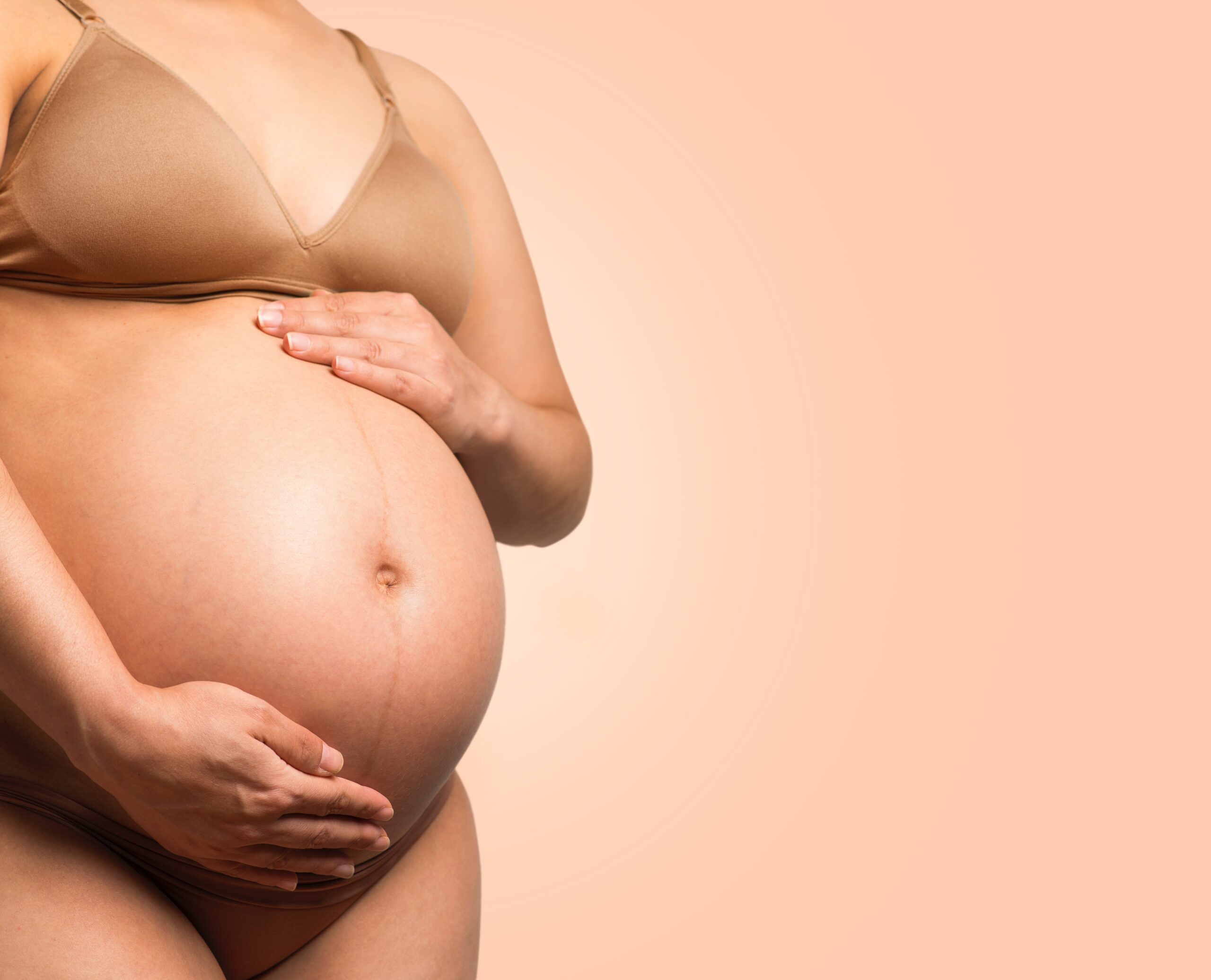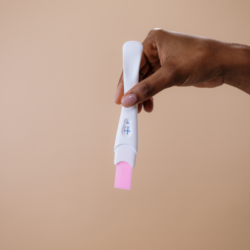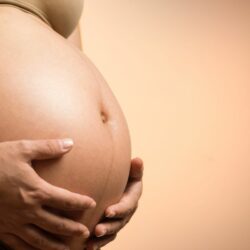Summer, with its sunny days and high temperatures, brings joy and vitality. However, for pregnant women, this season can present specific challenges. With the physiological changes of pregnancy come special needs, especially in the heat of summer. In this article, we look at some essential strategies for making the most of this delicate period. We’ll focus on the importance of heat management, hydration and healthy eating. In addition, we will explore practical tips for maintaining optimal well-being, both physically and emotionally. Our aim is to offer mums-to-be the keys to a serene and fulfilling summer, in harmony with their pregnancy.
Summer pregnancy: what are the challenges?
Summer pregnancy brings with it its share of challenges, not least because of the rise in temperature. During this period, the pregnant woman’s body undergoes physiological changes that can be exacerbated by the heat. Thermoregulation, i.e. the body’s ability to maintain its internal temperature, is often more difficult during pregnancy. Pregnant women may feel hotter and sweat more, which can cause noticeable discomfort.
Understanding heat-related difficulties
What’s more, pregnancy leads to an increase in blood volume, which puts more pressure on the cardiovascular system. In summer, with high temperatures, the heart has to work harder to maintain a normal body temperature, which can make you feel tired and exhausted more quickly. So it’s vital for pregnant women to recognise these challenges and adopt strategies to stay cool and comfortable.
The problems of dehydration and fatigue
Dehydration is a major risk during pregnancy, especially in summer. The need for adequate hydration is amplified during this period because of the body’s increased need for water. Dehydration can have serious consequences for both mother and baby, including the risk of urinary tract infections, premature contractions and complications during childbirth. It’s crucial to drink water regularly throughout the day, even if you don’t feel thirsty straight away.
Fatigue is also a common challenge during a summer pregnancy. High temperatures can aggravate the fatigue normally associated with pregnancy. This is due to a number of factors, including sleep disturbance, the extra work the body has to do to regulate temperature and the extra strain on the heart. It’s important for pregnant women to take it easy,avoid strenuous activities during the hottest part of the day and take regular breaks.
Fight morning sickness naturally
Use the Sea Band Anti-Nausea Bracelet for Pregnant Women to calm your nausea using acupressure, a traditional Chinese technique. These bracelets are fitted with small, discreet balls that apply gentle pressure to the Nei-Kuan or P6 point. In fact, applying pressure to this point on the inside of the wrist effectively stops vomiting, naturally and without medication.
Avoiding dehydration and eating well during pregnancy
It’s not easy being pregnant in the heat!
However, the basic rules for pregnant women are as follows:
- Eat healthily, giving priority to fibre and fresh fruit and vegetables.
- Drink water or fruit juice regularly. It’s important to stay well hydrated! However, beware of drinks with too much sugar or fizzy drinks, which are not good for your health.
- Favour lighter meals to facilitate digestion, which is a heat-generating activity.
Pregnant and comfortable in your clothes
During pregnancy, clothing comfort takes centre stage, especially in summer. It’s essential to find the right outfits that combine comfort and style. Here are a few tips on how to stay comfortable and stylish at the same time.
- Opt for fluidity and lightness: Choose loose-fitting clothes that allow air to circulate freely. Long dresses, flowing trousers and flared skirts in natural materials such as cotton or silk are perfect for keeping cool.
- Style and personality: Even with a few extra kilos, it’s important to feel good about yourself. Choose clothes that reflect your personality and make you look your best, so you feel beautiful and confident.
- Choosing shoes: Pregnancy can bring changes to your posture and gait. Choose comfortable shoes, such as flats or low heels, to maintain good posture and avoid aches and pains.
In conclusion, by choosing suitable, comfortable outfits, you can get through the summer months with ease, while remaining true to your personal style.
Pregnant in summer: how to protect yourself from the sun and heat?
Protection from the sun’s UV rays is essential for pregnant women, especially in summer. The use of sun cream is therefore an absolute must. We recommend a broad-spectrum sun cream, offering protection against UVA and UVB rays, with an SPF (sun protection factor) of at least 30. It’s important to apply it generously to all exposed parts of the body and to reapply every two hours, as well as after every swim or excessive perspiration.
Using sun cream
Skin during pregnancy can be more sensitive and prone to irritation or allergies. It is therefore advisable to choose hypoallergenic, fragrance-free sun creams specially designed for sensitive skin. It’s also important to test the cream on a small area of skin before using it extensively to make sure it doesn’t cause an adverse reaction.
Seek shade and avoid hot hours
As well as using sun cream, it is essential for pregnant women to seek shade and avoid exposure to the sun during the hottest hours of the day, generally between 10am and 4pm. During these hours, UV rays are most intense and can increase the risk of heatstroke and sunburn.
Getting into the shade, under an umbrella, tree or other shelter, will considerably reduce your exposure to the sun. Wearing a wide-brimmed hat, sunglasses and light, covering, light-coloured clothing can also provide additional protection against the sun’s harmful rays.
By taking these precautions, pregnant women can enjoy summer activities while minimising the risks associated with exposure to the sun and heat, ensuring greater comfort and safety for themselves and their babies.
Specific dietary advice for pregnant women in summer
During pregnancy, and particularly in summer, it’s important to focus on certain foods that are beneficial both for the mother’s health and the baby’s development. Fresh fruit and vegetables are essential, as they provide vitamins, minerals and good hydration. Options such as melons, citrus fruits, cucumbers and salads are perfect for staying hydrated and nourished.
Foods to choose
Protein is also crucial. Opt for lean protein sources such as poultry, fish (watch out for varieties with a high mercury content), eggs and legumes. Whole grains, such as quinoa, oats and brown rice, are excellent for providing lasting energy while aiding digestion thanks to their fibre content.
It’s also important to include iron-rich foods to prevent anaemia, such as spinach, lentils and certain red meats, but make sure they are cooked thoroughly. Dairy products, for their part, are a good source of calcium, which is necessary for a baby’s bone development.
Foods to avoid
Certain foods should be avoided or eaten with caution during pregnancy, especially in summer. It is advisable to limit your intake of caffeine, which is found in coffee, tea, certain fizzy drinks and chocolate. Caffeine can increase heart rate and blood pressure, and in large quantities could affect the foetus.
Overly spicy or fatty foods can cause heartburn and discomfort, particularly during pregnancy. In addition, raw or undercooked foods, such as certain soft cheeses, seafood and meats, can present a risk of bacterial or parasitic contamination and should therefore be avoided.
Alcohol consumption should be avoided entirely during pregnancy, as it can have harmful effects on the baby’s development.
When I’m pregnant, I support my abdomen
Thanks to the black Support Band Size L from Medela, you’ll enjoy optimum comfort and support throughout your pregnancy.
Made from 91% microfibre, 9% polyamide and elastane, it’s seamless. What’s more, it adapts to the body while remaining discreet under clothing. At the same time, it soothes back pain and provides optimum support for the lower abdomen.
How can I avoid toxoplasmosis?
Toxoplasmosis is an infectious disease caused by the parasite Toxoplasma gondii. Although the majority of people infected have no symptoms, this disease can pose significant risks for pregnant women and their babies. To prevent toxoplasmosis infection, pregnant women who have not been immunised should take certain precautions, such as :
- Avoid eating raw or undercooked meat, especially lamb and pork.
- Avoid direct contact with cats and their faeces, as they may carry the parasite.
- Wear gloves when handling soil or sand, which may be contaminated by cat faeces.
- Wash raw fruit and vegetables thoroughly to remove any traces of soil that may be contaminated.
- Wash your hands thoroughly after handling raw meat, soil or cat excrement.
In France, all pregnant women are tested for toxoplasmosis during their first antenatal visit. If they have not been immunised, they will be tested regularly throughout their pregnancy to detect any new infection. In the event of infection, treatment may be administered to reduce the risk of transmission to the foetus and minimise the effects of the infection.
Heat and exposure to pesticides during pregnancy
Summer can pose unique challenges for pregnant women, particularly in terms of managing heat and exposure to potentially harmful substances such as pesticides. Recent research is shedding important light on these issues.
- Heat stress and physical activity: A systematic review explored the environmental limits for exercise and passive heat stress during pregnancy. The results suggest that pregnant women can, under certain conditions, engage in moderate physical activity and expose themselves to heat without exceeding the critical body temperature threshold of 39.0°C, above which the risk of teratogenicity increases. This indicates that certain forms of exercise and exposure to heat are safe during pregnancy, provided they are well managed.
- Exposure to organophosphate pesticides: Another study conducted in the Netherlands highlighted the link between diet and pesticide exposure in pregnant women. The study found that fruit consumption was a major source of exposure to organophosphate pesticides. Levels of metabolites of these pesticides in urine were higher than those reported in other studies, raising questions about the potential effects on the health of unborn children. Further research is needed to determine the precise impact of this exposure on foetal health.
These studies underline the importance of pregnant women remaining informed and cautious. Particularly during the summer, in terms of their physical activity and diet. Awareness of the risks and appropriate management of exposure to heat and pesticides can contribute to a healthier, safer pregnancy.
References:
- Br J Sports Med. 2019 Jul;53(13):799-805. doi: 10.1136/bjsports-2017-097914. Epub 2018 Mar 1.
Heat stress and fetal risk. Environmental limits for exercise and passive heat stress during pregnancy: a systematic review with best evidence synthesis - Int J Hyg Environ Health. 2018 Apr;221(3):489-501. doi: 10.1016/j.ijheh.2018.01.013. Epub 2018 Feb 3.
Determinants of organophosphate pesticide exposure in pregnant women: A population-based cohort study in the Netherlands







